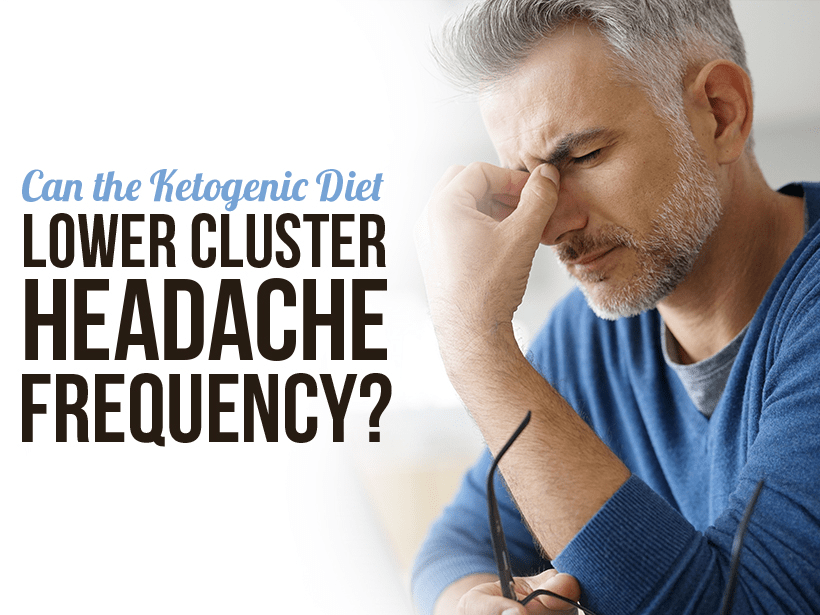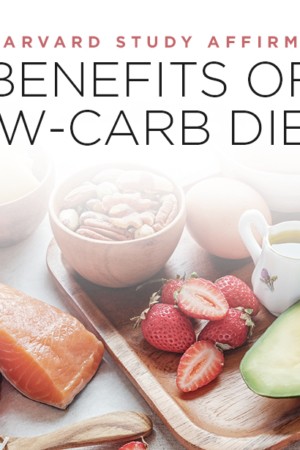Cluster headaches are short but extremely painful headaches that can repeat for weeks or months at a time. They affect 1 in every 1,000 people and are more common in men than women before the age of 30. These occur when a specific nerve pathway is activated in the base of your brain: at the hypothalamus, specifically in the area that controls your sleep and wake cycle. Symptoms include one-sided pain, burning, and throbbing. Treatment typically includes several drugs with really long names I won’t bother you with. The important part is that in a paper published on the 12th of February this year, a new treatment was proposed: the ketogenic diet.1
The Setup
The researchers reported observed relief at the conclusion of the study from these cluster headaches after 12 months of being on the ketogenic diet. Following the study, this same group administered the treatment to a migraine patient who felt relief from migraines after getting on the diet. Data was collected in the form of a headache diary in which each patient (12 of them) reported their symptoms from a month before the start of the diet to the last day of the 12-week study period. The diet itself was low carb (15 grams per day), low protein (0.7-1.2 grams per kg per day), and high fat. Each meal included fish, shellfish, poultry, red meat, eggs, low-carb and high-fat cheese, butter, heavy whipping cream, mayonnaise, olive oil, and vegetable oils.
Dopamine Activity
The first thing the researchers considered was dopaminergic activity, which is normally impaired in patients with clustal headaches. Dopaminergic activity refers to dopamine-related activities in the brain. Dopamine is a neurotransmitter in your brain that plays a huge role in reward-motivated behavior. It also acts to regulate many of your other body systems including digestive, urinary, and immune systems. In the patients studied, dopaminergic activity increased.2 This phenomenon was seen in another study involving mice on a ketogenic diet; dopaminergic activity increased.3
Decreasing the Number of Attacks
Next, the number of attacks during the diet in patients with cluster headaches decreased significantly over the first three months of being on the ketogenic diet in comparison to baseline levels, before they started the diet. For example, attacks went from between 100 and 120 attacks per month at baseline to between 20 and 40 per month in the third month.
Looking to the Past for Inspiration
This idea of defeating headaches with a diet change is nothing new. Specifically, fatty acids have been repeatedly suggested as a therapy for them. For example, in 2016, Martin and Vij showed that a ketogenic diet was more effective than a standard diet in reducing the frequency of migraines because of its ability to affect their neuropeptides (proteins in the brain), neuro-receptors and ion channels, inflammation, widening of blood vessels, and glucose metabolism in the brain.4
Keeping it Low Sugar
Consider another study where a group of researchers studied the appearance of migraines in in 147 migraine patients. 5 They noticed after 3 months, the 147 patients in the low-glycemic group experienced a significant decrease in migraines. One of the hallmarks of the ketogenic diet is that it is a low-carb diet. Carbohydrates are full of glucose, which is sugar. The 147 patients had low blood glucose, indicated by the terminology “low-glycemic.” The researchers proposed that migraine frequency decreased as a result of this.
New research continues to arise on the benefits of the ketogenic diet. An ability to decrease the frequency of cluster headaches is just another one to add to the list!
NUTRITIONAL DISCLAIMER
The content on this website should not be taken as medical advice and you should ALWAYS consult with your doctor before starting any diet or exercise program. We provide nutritional data for our recipes as a courtesy to our readers. We use Total Keto Diet app software to calculate the nutrition and we remove fiber and sugar alcohols, like erythritol, from the total carbohydrate count to get to the net carb count, as they do not affect your blood glucose levels. You should independently calculate nutritional information on your own and not rely on our data. The website or content herein is not intended to cure, prevent, diagnose or treat any disease. This website shall not be liable for adverse reactions or any other outcome resulting from the use of recipes or recommendations on the Website or actions you take as a result. Any action you take is strictly at your own risk.
- Research Shows Improvement in Anorexia Nervosa Condition With Keto - August 6, 2018
- New Potential for Ketogenic Diet to Prevent Alcohol Withdrawal Syndrome - August 1, 2018
- Woman on Early Menopause Saved By Keto - July 25, 2018




